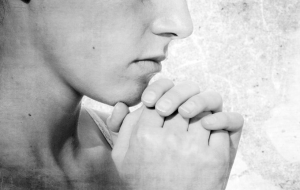The physical trauma of grief and loss
November 22, 2016
 By Dr. Nancy Gahles, DC, CCH, RSHom(NA), OIM Grief is a physiological reaction to an event, or events, resulting in a feeling of loss. Loss is not usually timely, and may result in denial or confusion. It is losing the bond, the affection attributed to a person, animal, possession, or state of being, that triggers grief. The mental distress individuals experience as a reaction to loss and grief can result in physical pain in the musculoskeletal system. For example, some reactions to sudden loss have been described as a punch in the stomach or being stabbed in the back. The respiratory system can also exhibit a state of collapse, with sensations such as shortness of breath or faintness. Cardiac symptoms of grief include heart palpitations, nausea, and pressure in the chest. Researchers at the Johns Hopkins University confirmed the validity of “broken heart” syndrome when they discovered that sudden emotional stress can result in severe heart muscle weakness that mimics a heart attack. Middle-aged and elderly women were most affected, according to the study. The researchers found that people may respond to sudden overwhelming emotional stress by releasing large amounts of stress hormones into the bloodstream. These chemicals can be toxic to the heart, effectively stunning the muscles and causing heart attack-like symptoms. (1) Unfortunately, not everyone is aware of how to properly grieve and care for themselves physically and mentally in times of loss. In these cases, the trauma and pain persists, acute shock may develop into insidious sadness, anxiety, or depression, and the body can develop disease. The ubiquitous connection between an individual’s mental state and inflammation has become in vogue as a topic of research, recognizing cytokines interleukin-6, interleukin-1 beta, and C-reactive protein, as well as tumor necrosis factor alpha, as correlative markers for depression. Simple awareness of the body and mind’s reaction to events can allow an individual to identify skillful strategies for coping and symptom management.
By Dr. Nancy Gahles, DC, CCH, RSHom(NA), OIM Grief is a physiological reaction to an event, or events, resulting in a feeling of loss. Loss is not usually timely, and may result in denial or confusion. It is losing the bond, the affection attributed to a person, animal, possession, or state of being, that triggers grief. The mental distress individuals experience as a reaction to loss and grief can result in physical pain in the musculoskeletal system. For example, some reactions to sudden loss have been described as a punch in the stomach or being stabbed in the back. The respiratory system can also exhibit a state of collapse, with sensations such as shortness of breath or faintness. Cardiac symptoms of grief include heart palpitations, nausea, and pressure in the chest. Researchers at the Johns Hopkins University confirmed the validity of “broken heart” syndrome when they discovered that sudden emotional stress can result in severe heart muscle weakness that mimics a heart attack. Middle-aged and elderly women were most affected, according to the study. The researchers found that people may respond to sudden overwhelming emotional stress by releasing large amounts of stress hormones into the bloodstream. These chemicals can be toxic to the heart, effectively stunning the muscles and causing heart attack-like symptoms. (1) Unfortunately, not everyone is aware of how to properly grieve and care for themselves physically and mentally in times of loss. In these cases, the trauma and pain persists, acute shock may develop into insidious sadness, anxiety, or depression, and the body can develop disease. The ubiquitous connection between an individual’s mental state and inflammation has become in vogue as a topic of research, recognizing cytokines interleukin-6, interleukin-1 beta, and C-reactive protein, as well as tumor necrosis factor alpha, as correlative markers for depression. Simple awareness of the body and mind’s reaction to events can allow an individual to identify skillful strategies for coping and symptom management. Stress is bearing the grief of being alive - AnonymousWinter, now upon us, is the season of death in nature’s playbook. We watch the sunlight change in intensity and the plants lose their productivity. When we notice the changes in the cycle of nature, being aware that we are part of that cycle, we may experience feelings of loss, and endings of our own. We may anticipate the long, cold, dark winters that predict isolation and loneliness, for some. Sadness and melancholy are common in this season, as is arthritis, a signal of contraction, cold, and immobility. Awareness of mental and physical reactions to the ever-changing circumstances around us is, in and of itself, a strategy for symptom management and preventing illness. The changes in the seasons, much like grief, result in dips in immunity and increased risk for illness. A proactive self-care plan to prevent ill-being, illness, and chronic disease, manage conditions, and promote health and harmony is accessible. The foundation for a viable self-care plan begins with identifying the cause of the pain that the body presents with by eliciting a history of emotional traumas.
When we realize that afflictions are no other than enlightenment, We can ride the waves of birth and death in peace, Traveling in the boat of compassion on the ocean of delusion, Smiling the smile of non-fear. -Understanding Our Mind, Thich Nhat HahnSmiling fosters happiness. Cultivating a state of happiness fosters health and harmony. In the midst of the “full catastrophe of life”, as Zorba the Greek aptly put it, we can transform grief into happiness in body and mind. RESOURCES
- Journal of the American College of Cardiology:Lazzarino A, et al, “The Association between cortisol response to mental stress and high-sensitivity cardiac troponin T plasma concentration in healthy adults” J Am Coll Cardio 2013




















SHARE